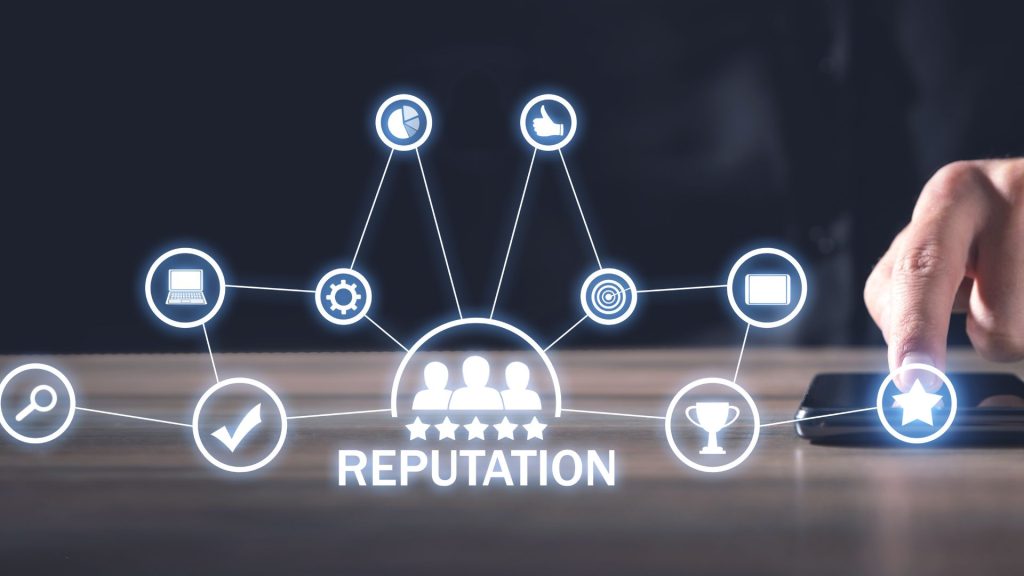If you’re one of the many business owners who need to increase their business profile, you’ll find no shortage of companies willing to help you out—for a fee, of course.
Scam Detectors Most Trusted Websites in Online Security
- Guard.io (100): Surf the web safely. Clean up your browser, remove maliscious extensions and check for privacy violations.
- Incogni.com (100): Delete your personal data from the internet and protect against scams and identity theft.
- ExpressVPN (100) Stay secure and anonymous online - Best VPN Out There
- IPVansish (100) Fast VPN to stay safe and secure online with multiple discount plans.
However, the vital part of the process is knowing which ones you can trust and which will be time and money down the drain.

Here are 6 types of online reputation scams I found to be the most prevalent:
1. SEO Backlink Scams
SEO is a way to help your website to rank highly on search engines for relevant keywords. One way of achieving this is to have other websites link back to yours—a process called backlinking.
However, be careful. This has to be done genuinely and in the most ethical way. Google penalizes backlinking that is done only to alter your online presence artificially.
Many businesses will say they can help you with backlinking, but if the sites the link comes from are poor quality and poorly ranked, that link won’t count for much. This means they’ll take your money and give you nothing in return.
“Look only for legitimate companies that have a proven track record of linking only to quality sites in a traditional way”, advises James Owen, Director at ClickIntelligence.co.uk, a company specialized in building online reputation.
2. Pay-Per-Click (PPC) Scams
Pay-per-click advertising can get you faster results than backlinks but can work out more expensive, especially if you’re being scammed. The scam can look legitimate on the surface and will get you lots of clicks. However, these are likely to come from click farms, which are just people paid to sit and click links all day.
This means that you get charged for the click by the platform you’re advertising on but get no return from leads or sales, as the click isn’t genuine.
To avoid this kind of scam, you should monitor your results carefully. If you see a poor click-to-sales ratio, then examine what’s going on more closely or install software that detects this behavior.
3. Social Media Influencer Scams
Social media influencers are seen as a fastrack to exposure and sales and can be effective if you do your due diligence first. The scam here is that some influencers will buy or have ‘bot’ followers, making it look like they have a larger following than they actually do so that they can charge more for a promotion or a ‘collaboration.’
This means you will be paying money for nothing, so before you engage with an influencer, you should check their engagement levels (i.e., how many followers actually like or share their posts).
If it is low, it means their followers are imaginary, or their content is poor – either way, you don’t want to work with them. Another option is to have them work for commission only instead of a flat fee. That way, you have lost nothing if they can’t walk the walk.
4. Fake Online Reviews
Online reputation building is essential for individuals and businesses, but unfortunately, scams and unethical practices are associated with fake favorable profiles and reviews. These scams can damage your online reputation further or waste your money.
Scammers create fake online profiles and post positive reviews about a business or product to boost its reputation. They may also post negative reviews about competitors.
Red flags? A sudden influx of overly positive or negative reviews, profiles with little or no other activity, or generic-sounding reviews. Trust me, I've seen so many fake reviews that I could write a book about them.
5. Review Removal Services
Scammers claim they can remove negative reviews from websites or platforms for a fee. They often cannot deliver on this promise and may disappear after receiving payment. The point is, they claim the removal will take some time, so the victim waits and waits and waits. Forever.
What shall you look to avoid here? Promises of guaranteed review removal, lack of transparency about their methods, and upfront payment requests.
6. Blackmail and Extortion
This scam is not too popular yet, but it is a good idea to be aware of. Scammers may threaten to publish damaging information or false reviews unless a business or individual pays a fee.
My suggestion is to ignore any unsolicited threats, demands for money or personal information, and attempts to coerce payments. However, before everything, don't share too much sensitive informationdon't share too much sensitive information with anyone.
Key Takeaways
To protect yourself from online reputation scams, exercise caution when dealing with reputation management services and research them thoroughly.
Verify the legitimacy of reviews and social media engagement, and report any suspicious activity to the relevant platform or authorities. Building a genuine online reputation takes time and effort, so be wary of any service promising quick fixes or guaranteed results.
Online Reputation Scams: How To Report Them
Let your close family and online friends know about these 6 online reputation scams. Feel free to share this page if it was helpful. Meanwhile, you can report crooks and any suspicious activity to the Federal Trade Commission (FTC) using the portal below:
How To Protect Yourself More
To stay ahead of the latest scams each week, consider subscribing to our Scam Detector newsletter, where you'll be among the first to receive email updates. Our newsletter provides periodic notifications containing valuable insights on fraud prevention and the latest tools to combat criminal activity.
In the meantime, we encourage you to explore our collection of articles related to fraud for self-education. These resources are conveniently listed below, helping you enhance your knowledge of online security.
Lastly, should you ever encounter any negative experiences, please utilize the comments section below to share your encounters and help expose potential scammers. Your contributions can make a difference in protecting others from falling victim to scams.
Latest scams:
Verify a website below
Are you just about to make a purchase online? See if the website is legit with our validator:
vldtr®


TOP 4 MUST-WATCH FRAUD PREVENTION VIDEOS
1. Top 5 Amazon Scams in 2024 2. Top 5 PayPal Scams in 2024 3. How To Spot a Scam Email in 2024
- Latest Posts by Sorin Mihailovici
-
How Safe Is Your Cryptocurrency Investment In 2024
- -
5 Flippa Scams And How To Avoid Them
- All Posts













